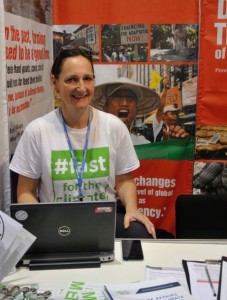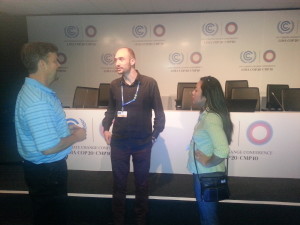HungerGames at the UN Climate Summit
“If we truly care about the poor (and we do), we need to educate people to the tragedy a UN climate treaty would be for developing nations.Poor countries need freedom, energy, prosperity and the rule of law just as much as wealthy nations do. That message needs to get out.That’s why we’re in Peru.” Craig Rucker Executive Director CFACT
In 2012, Typhoon Bopha struck the Philippines while CFACT was at COP 18, the UN climate conference in Doha, Qatar. Filipino negotiator Yeb Sano made a tear-filled speech pleading for a global warming treaty.
Last year Typhoon Haiyan dealt the Philippines a devastating blow around the time CFACT was working at COP 19 in Warsaw. Sano responded with a hunger strike that stole the show.

 called “kamikazes” or “divine winds.” These storms later gave their name to the Japanese suicide pilots who hoped to block the imminent invasion planned by the allies at the close of WW II.
called “kamikazes” or “divine winds.” These storms later gave their name to the Japanese suicide pilots who hoped to block the imminent invasion planned by the allies at the close of WW II. call for a far warmer world than observations of real-world conditions have shown. Only a few years have clocked in at 1/2 a degree above baseline — not enough warming to account for storms, droughts, floods, fires or the rest of the plagues the global warming folks would like us to believe are caused by economic freedom.
call for a far warmer world than observations of real-world conditions have shown. Only a few years have clocked in at 1/2 a degree above baseline — not enough warming to account for storms, droughts, floods, fires or the rest of the plagues the global warming folks would like us to believe are caused by economic freedom.– See more at: http://www.cfact.org/2014/12/04/hunger-games-at-the-un-climate-summit/?utm_source=CFACT%20Updates&utm_campaign=bf0dedde48-Global_warming_hunger_games12_4_2014&utm_medium=email&utm_term=0_a28eaedb56-bf0dedde48-269736665#sthash.5iy6zV2O.dpuf
Comments are closed.

